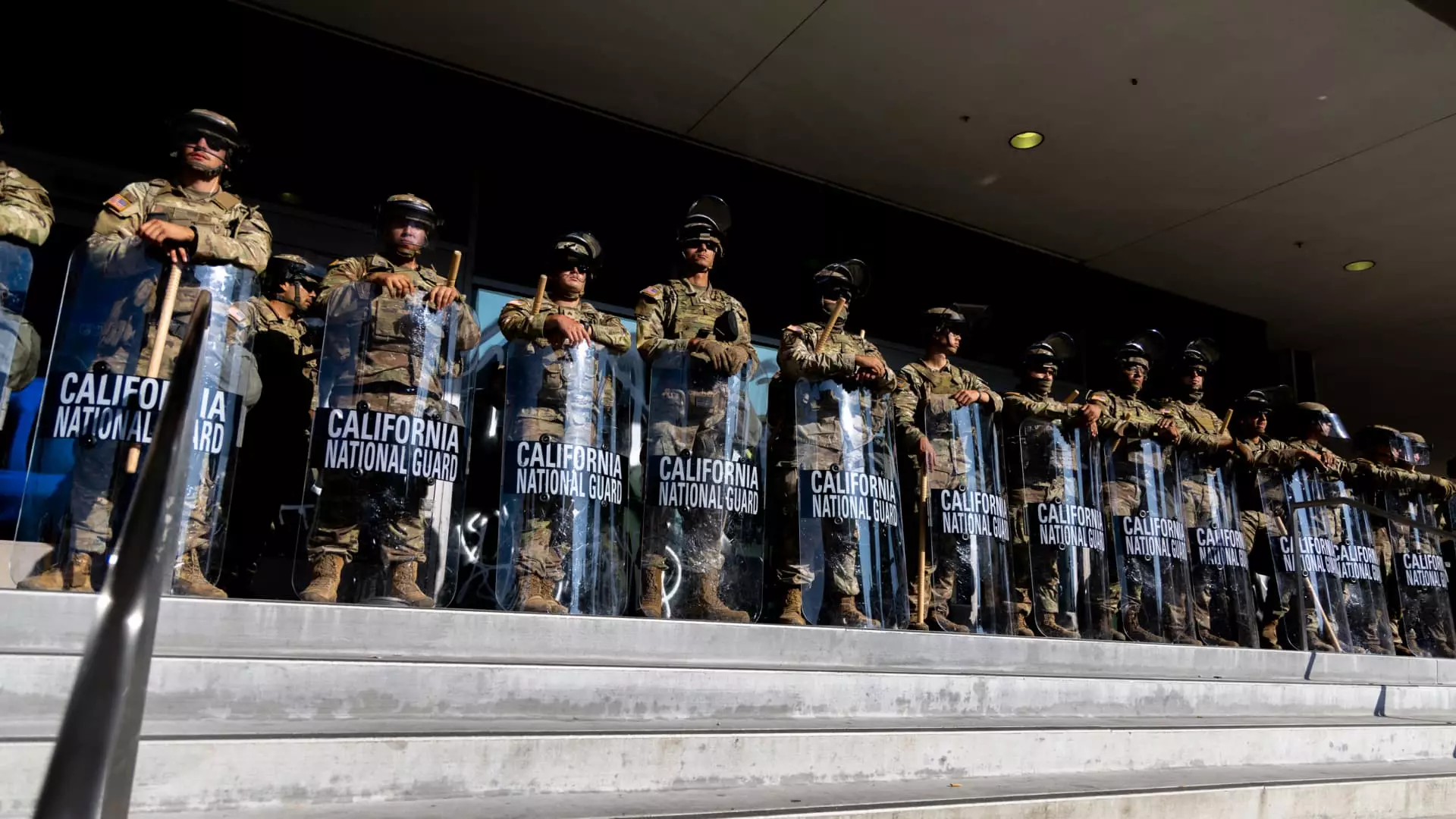In a striking display of power, an appeals court ruled that President Donald Trump could retain control over National Guard troops deployed to Los Angeles amidst heightened tensions following protests against immigration raids. This ruling halts a prior decision made by a lower court that deemed Trump’s actions illegal, emphasizing a troubling precedent in the interaction between state and federal powers. As President Trump seized control of the California National Guard without the explicit permission of Governor Gavin Newsom, we find ourselves at a crossroads where governmental overreach and civil liberties collide.
The deployment itself was the first in over half a century, with the last instance occurring in 1965. This historical context fuses significance to the ruling, as it raises alarm bells about the boundaries of presidential authority. What does it say about the respect for state governance when the sitting president can orbit around significant legal precedents to order the military presence without local consent? This case is not merely an isolated legal battle; it’s emblematic of a broader struggle for democratic principles.
Legal Justifications vs. Political Motives
While the appeal court’s three-judge panel affirmed Trump’s power, they acknowledged that federal authority does not rise to unlimited heights. The argument presented by the Trump administration centered around the notion of public safety, citing violent altercations between protesters and federal law enforcement as justification for military intervention. Such reasoning is steeped in subjective interpretation—while safeguarding federal officers is noble, we must question if the choice to invoke military presence aligns with the fabric of democratic values or simply further inflames existing tensions.
The arguments presented reveal an unsettling trend where federal oversight appears to usurp the local authority that is critical to democracy. Governor Newsom’s firm stance against the deployment was not just an appeal for local autonomy; it highlighted an intrinsic dispute within American governance—a tug-of-war between federal might and state rights. The court’s ruling, therefore, could set a worrisome precedent for the future. Does the president’s control over the National Guard suggest an opening for federal troops to be dispatched at will, disregarding state-level checks and balances?
The Risk of Polarization
As the court ruled against Newsom—who had initially secured a win in the District Court—the implications extend beyond this specific deployment. The shifting dynamics of power could embolden future presidents to act unilaterally, particularly in political environments characterized by division and partisanship. The ruling insinuates that President Trump’s actions align with a federalistic approach, yet the reality is that this could also catalyze more aggressive policing tactics that polarize communities rather than foster dialogue and resolution.
The ugly truth is that this escalation manifests in the broader narrative surrounding immigrant deportations and heightened enforcement in politically liberal cities. With Trump’s threats to utilize federal forces in Democratic strongholds, we are left grappling with the potentiality of a state fueled by fear rather than trust. That the courts should acquiesce to such an approach signals an alarming retreat from the principles of local governance and civil liberties.
Can Democracy Flourish?
As the legal dramas unfold, questions linger on whether our democracy can truly thrive when the boundaries of authority are systematically blurred. The perception of law enforcement as an instrument of state power rather than community protection destabilizes the fragile social contract between citizens and their governments. It ignites discussions about whether the normalization of National Guard deployments in response to civil unrest only serves to silence dissent rather than engage with the root causes of such protests.
With protests already reported to be subsiding, one can’t help but wonder: was the deployment an act of safeguarding or a desperate bid for political theater? The decision to utilize military forces raises stark questions about governance, ethical leadership, and the treatment of dissenting voices in a democratic society. As we grapple with these issues, we must remain vigilant to ensure that the ideals of democracy remain in sight, lest we fall victim to an indifference that blurs the line between order and oppression.

Leave a Reply